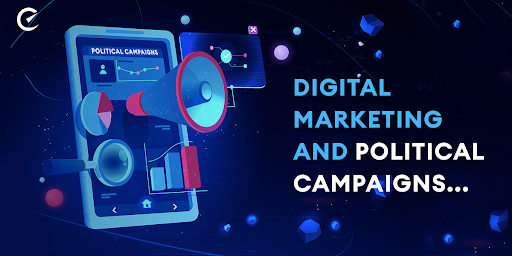Political digital marketing refers to the use of online platforms and digital strategies to promote candidates, parties, and political ideas. It encompasses a wide range of activities designed to engage voters, spread messages, mobilize supporters, and ultimately influence electoral outcomes. As technology continues to evolve, political digital marketing has become an essential tool in modern campaigns, providing candidates with innovative ways to connect with constituents and shape public discourse.
Critical Components of Political Digital Marketing
Social Media Marketing
Social media platforms such as Facebook, Twitter, Instagram play a central role in political digital marketing. Candidates use these channels to share content, interact with voters, and build communities of support. Through targeted advertising and organic posts, campaigns can reach specific demographics, tailoring messages to resonate with different voter groups.
Content Marketing
In political contexts, this can include blog posts, videos, infographics, and podcasts that highlight a candidate’s policies, values, and personal stories. Effective content marketing helps candidates establish authority, foster connections, and keep supporters informed.
Email Marketing
Email remains a powerful tool for political campaigns. Candidates use email to share updates, solicit donations, and mobilize supporters for events. Personalized email campaigns can increase engagement and provide a direct line of communication with voters, allowing for tailored messages based on recipient interests.
Search Engine Optimization (SEO)
By optimizing content with relevant keywords, candidates can increase visibility and drive traffic to their sites, making it easier for voters to find information about their platforms and initiatives.
Data Analytics
Data analytics is crucial in political digital marketing. Campaigns collect and analyze data from various sources, including social media interactions, website traffic, and voter behavior. This data informs strategy, allowing campaigns to identify critical issues, measure engagement, and refine targeting efforts.
Online Advertising
Digital advertising, including pay-per-click (PPC) ads and social media ads, allows campaigns to reach specific audiences with precision. Candidates can maximize the impact of their marketing dollars by creating tailored advertisements based on habits, interests, and demographics.
Influencer Partnerships
Influencers who have established credibility and a following can reach audiences that might need help to engage. By leveraging these partnerships, candidates can enhance their visibility and appeal.
Benefits of Political Digital Marketing
Enhanced Engagement
Digital marketing fosters two-way communication between candidates and voters. Social media allows for immediate feedback, enabling campaigns to engage with constituents in real time and build meaningful relationships.
Moreover, social media’s immediacy encourages spontaneous dialogue. Voters can comment on posts, share their opinions, and even challenge candidates directly. This level of engagement transforms traditional one-way communication into a dynamic exchange, where candidates can demonstrate their responsiveness and commitment to addressing the needs of their constituents.
Building meaningful relationships through digital engagement also enhances voter loyalty. When candidates actively participate in discussions, acknowledge feedback, and adapt their messages based on voter input, they foster a sense of community. This connection often translates into increased support, as voters feel valued and heard.
Cost-Effectiveness
Campaigns can reach large audiences with smaller budgets, making it accessible for candidates at various financial levels.
Targeted Messaging
One of digital marketing’s most significant advantages is the ability to segment audiences and tailor messages. Campaigns can focus on specific demographics, ensuring that their messages resonate with the right voters.
Real-Time Insights
Digital platforms provide immediate feedback on campaign performance. Analytics tools allow campaigns to track engagement metrics, understand voter sentiment, and adjust strategies in real time based on data.
Understanding voter sentiment is another critical aspect of real-time insights. Campaigns can monitor social media conversations and online discussions to gauge how constituents feel about specific issues or the candidate’s messaging. This ongoing assessment allows for a deeper understanding of voter concerns and preferences, making it possible to adjust strategies accordingly.
One of digital marketing’s most significant advantages is its ability to pivot in real-time. If a particular message or approach isn’t performing well, campaigns can quickly adapt their content, tone, or strategy based on data-driven insights. This agility not only optimizes campaign effectiveness but also demonstrates to voters that the candidate is responsive and attuned to their needs.
Mobilization of Supporters
Digital marketing can effectively mobilize supporters for events, fundraisers, and voter registration drives. Campaigns can quickly disseminate information and rally their base, leading to increased participation.
Challenges in Political Digital Marketing
While political digital marketing offers many advantages, it also presents several challenges:
Misinformation and Disinformation
The rapid spread of false information on social media can undermine credible campaigns. Candidates must be vigilant in monitoring and countering misinformation to protect their reputations and maintain voter trust.
Privacy Concerns
With increasing scrutiny on data privacy, campaigns must navigate complex regulations regarding voter data collection and usage. Ensuring compliance while effectively utilizing data for targeting is a critical balancing act.
Changing Algorithms
Social media companies regularly make changes to their algorithms, which has an impact on the distribution and viewing of material. Campaigns must stay informed about these changes and adapt their strategies to maintain visibility.
Resource Intensive
Effective digital marketing requires dedicated resources, including skilled personnel and technology. Smaller campaigns may need help to compete with larger, well-funded organizations that can invest heavily in digital strategies.
Conclusion
Political digital marketing has become an indispensable element of modern campaigns, enabling candidates to connect with voters in innovative ways. Through a combination of social media engagement, content creation, targeted advertising, and data analysis, candidates can effectively convey their messages, mobilize support, and influence public opinion.
As the political landscape continues to evolve, mastering digital marketing strategies will be crucial for candidates seeking electoral success. By understanding the benefits and challenges of this dynamic field, campaigns can navigate the complexities of the digital world and engage voters effectively. In an era where online presence can make or break a campaign, the importance of political digital marketing cannot be overstated.
